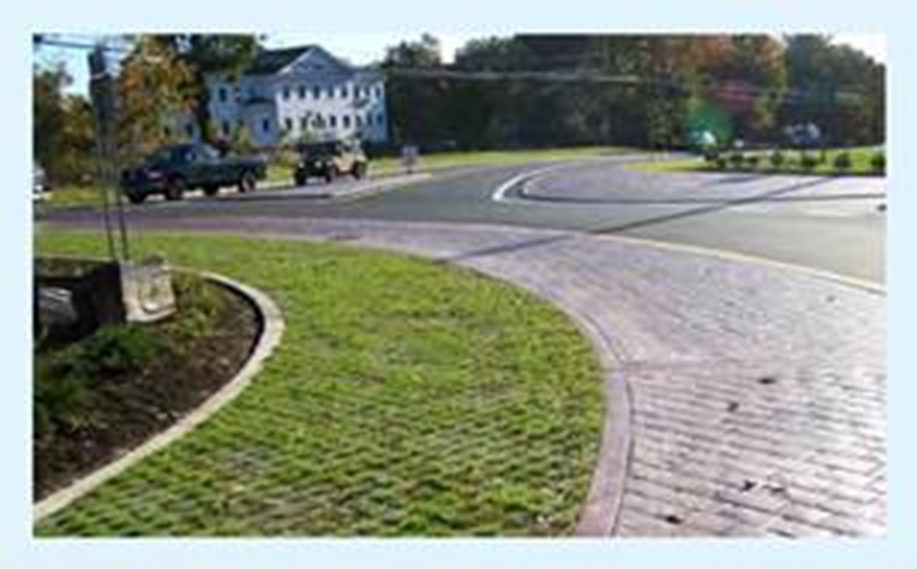Original publication: 2013 National Roadway Safety Awards Noteworthy Practices Guide; FHWA-SA-14-002; 2013


Describe the roadway safety situation or state before the new practice was implemented. What was the safety issue, problem, or gap?
Connecticut Department of Transportation (ConnDOT) searched for ways to reduce intersection crashes in Connecticut. The geometry of an existing rotary, at the intersection of Routes 80 and 81 in Killingworth, allowed higher speeds and conflicts between entering and circulating traffic and could not support vehicles with a larger turning radius. The rotary experienced high crash rates and included numerous deficiencies. The most obvious deficiency was the lack of deflection on the entrances. As with most rotaries, this one was originally configured to give the right of way to the entering traffic, with traffic in the circle having to yield to incoming vehicles. The entrances had little if any deflection, which allowed for high entry speeds and increased the potential for a serious collision.
What were the key challenges that needed to be addressed before the new practice could be implemented?
The Insurance Institute for Highway Safety performed a study on the extensive safety benefits of converting signalized and all-way stop-controlled intersections to modern roundabouts. Encouraged by these results, the Connecticut Department of Transportation (ConnDOT) decided to convert some of its old traffic circles to roundabouts.
ConnDOT reviewed several sites and selected three pilot locations based on crash history, volumes, constructability, and the potential for improvement. Due to safety concerns, the rotary at the intersection of Routes 80 and 81 in Killington, Connecticut, was a prime candidate.
Describe the new practice:
The existing rotary facility at the intersection of Routes 80 and 81 in Killington was replaced with a roundabout. To slow traffic on the approaches, ConnDOT created some deflection and added a truck apron around the central island. The overall dimensions of the intersection were not altered, but the east leg was realigned slightly to improve the angle of the intersection. In addition, ConnDOT installed raised splitter islands and raised truck “blisters” (raised truck aprons placed on the outside of the roundabout) on two of the four quadrants. ConnDOT removed some of the existing pavement to create a more circular intersection shape, which helped with deflection and slowed traffic.
List the key accomplishments that resulted from the new practice. Include the roadway safety improvements.
- Reduced Crash rates
What benefits were realized as a result of the practice?
Measurable reductions in crashes, injuries, and fatalities. Speeds are now within the range of 15-20 MPH for all movements, eliminating the significant speed differentials that existed previously. Comparing the latest available 3-year period (2009-2011) crash history to the 2005-2007 data, the total number of crashes was reduced from 20 to 10 (50% reduction), the number of injury crashes was reduced from 6 to 1 (83% reduction), and the number of injuries was reduced from 7 to 1 (86% reduction).
Is the practice you are submitting from a larger report, journal, or other document? Yes
2013 National Roadway Safety Awards Noteworthy Practices Guide
Publication FHWA-SA-14-002
Contact
William Britnell
Connecticut Department of Transportation
860-594-3274
William.Britnell@ct.gov
